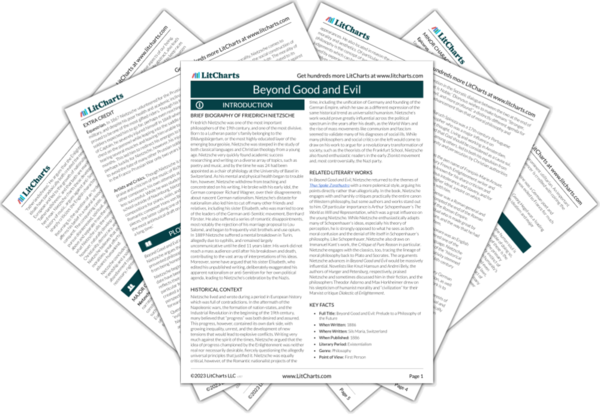Richard Wagner Quotes in Beyond Good and Evil
In all the more profound and comprehensive men of this century, the over-all direction of the mysterious workings of their soul was to prepare the way for this new synthesis and to anticipate experimentally the European of the future: only in their foregrounds or in weaker hours, say in old age, did they belong to the “fatherlandish”—they were merely taking a rest from themselves when they became “patriots.” I am thinking of such human beings as Napoleon, Goethe, Beethoven, Stendhal, Heinrich Heine, Schopenhauer: do not hold it against me when I include Richard Wagner, too, with them, for one should not allow oneself to be led astray about him by his own misunderstandings—geniuses of his type rarely have the right to understand themselves.










